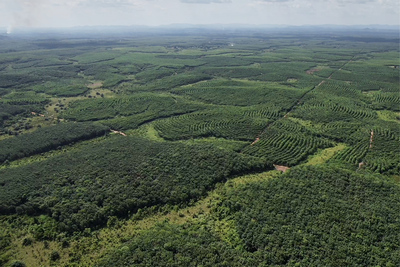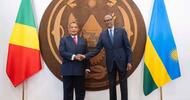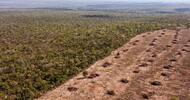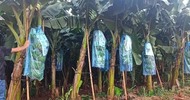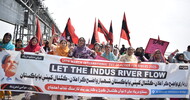Mongabay 25 July 2024
Troubled rubber plantation in Liberia shuts down after labor unrest
by Ahoka Mukpo
- On June 27, aggrieved workers at the Belgian-French firm Socfin’s rubber plantation in Liberia burned the company’s headquarters and its manager’s private residence.
- The unrest followed a five-day strike over working conditions, housing, medical care and other complaints.
- Despite not being present during the incident, two prominent union leaders have been imprisoned without bail for more than three weeks.
- In the wake of the incident, Socfin has decided to shutter its operations in Liberia indefinitely.
Two prominent union leaders remain in prison a month after the headquarters of the Salala Rubber Corporation in Liberia was set on fire by aggrieved rubber tappers. The pair are among 60 workers who were named in an indictment seen by Mongabay. Along with another union official, they stand charged with conspiracy to commit a series of crimes, including arson. The three have been jailed for more than three weeks along with six other workers from the plantation.
Salala is the Liberian subsidiary of the Belgian-French agricultural conglomerate Socfin, which operates rubber and oil palm plantations across West and Central Africa. The incident occurred on June 27 amid a campaign by the workers’ union to obtain a collective bargaining agreement that would guarantee better housing conditions, medical care for work-related injuries, a reduction in harvesting quotas, and other improvements.
In mid-June, workers staged a five-day strike action in which they refused to work on the plantation. Salala’s management agreed to address some of the union’s demands, but said they would not pay the workers for the days they spent on strike.
The refusal spurred some rubber tappers to ransack Salala’s headquarters, which were set on fire along with the private residence of the plantation’s manager, who was briefly detained by workers before being freed by company security. According to the Liberian government, more than $275,000 of company property was destroyed in the incident.
Mary Boimah, the Salala Rubber Corporation Worker’s Union president, and Lawrence Gborkor, its secretary, were arrested shortly afterward along with their colleague.
According to an attorney for the union leaders, they were not present when the buildings were set on fire, and have been jailed as retaliation for their advocacy and efforts to negotiate a collective bargaining agreement for the plantation’s contract workers.
“I spoke to another lady who said that on the day of the riot, Mary was with her at the capitol building in Monrovia meeting with lawmakers on these issues,” said Samwar Fallah, an attorney with Green Advocates, a legal group representing the union chiefs in court. “She was not anywhere near the crime scene, I don’t know how she got caught up.”
In the days and weeks after the riot, sources told Mongabay that Liberian police descended on communities in and around the plantation, indiscriminately arresting tappers and searching their homes for stolen rice and other company property.
“It’s become so difficult for people in the communities and in the plantation,” Mac George, a worker with Salala told Mongabay in early July. “Anybody that they see in the plantation at night, they can arrest you and turn you over to the police and have you justify that you are not a tapper.”
The incident is the latest in a series of headaches for Salala’s parent company, the Luxembourg-headquartered Socfin. In January 2023, Mongabay published an investigation into Salala’s operations in Liberia, which found a pattern of sexual exploitation of female workers, destruction of gravesites, and pollution of waterways in towns affected by the company’s 4,577-hectare (11,310-acre) rubber concession.
Most of Mongabay’s findings were confirmed last year by the Earthworm Foundation, a consultancy firm contracted by Socfin to carry out an independent investigation of its operations in Liberia, Cameroon, Sierra Leone and Nigeria.
Salala is also currently being investigated by the World Bank’s Compliance Advisor Ombudsman over a complaint filed by 22 communities in 2019, which alleges that a $10 million loan from the World Bank’s International Finance Corporation violated the bank’s human rights and environmental rules. The bank’s findings are expected to be released soon.
For Socfin, the unrest appears to have been the last straw for its Liberian investment. On July 2, the company posted a press release on its website that said it was shuttering Salala’s operations indefinitely. The decision follows a shareholder meeting last year in which Socfin said it was looking for a buyer for the troubled plantation.
“What we know as fact as opposed to rumor is that Socfin announced in its annual report in 2023 was that [Salala] was losing money for them, and they had listed it as an asset for sale,” said Jonathan Kaufman, executive director of Advocates for Community Alternatives, a U.S.-and-Ghana-based legal advocacy group.
In an open letter published in early June, representatives of communities inside Salala’s plantation criticized Socfin’s plans to sell the plantation, saying it should first pay for damages suffered by workers, villagers and the environment due to its operations.
“The human rights violations that took place in those communities by SRC, they haven’t even paid compensation for any of that,” said Windor Smith of the Natural Resource Women’s Platform, a civil society group that works with communities inside the plantation. “So SRC can’t just leave that and sell out. They’re asking that if SRC wants to sell out, they should settle all their liabilities with them.”
The World Bank has been criticized for the slow pace of its investigation, but advocates who’ve worked on the community complaint say they expect it to confirm the allegations made against Salala.
“It feels as if the reason why they’d be looking to offload the plantation is that they know the IFC’s investigative report is going to be extremely negative,” Kaufman said.
Salala is not the first high-profile agricultural investment to collapse in Liberia in recent years. In 2020, Malaysian palm oil giant Sime Darby sold its 220,000-hectare (544,000-acre) concession after managing to plant only 10,300 hectares (25,500 acres) during a decade that saw it criticized for land grabbing and deforestation by human rights and environmental campaigners.
In shutting down Salala’s operations, Socfin is terminating more than 800 jobs — one of the major selling points of its investment in Liberia. Additionally, a school for the children of its workers has closed down midway through the term.
“Due to the riot the company closed the school and the clinic. So where do the local community people go for medication? The citizens and tappers are angry,” George said.
Fallah told Mongabay that the conditions Boimah, Gborkor and the other union official are being held in are harsh, and that they’ve been suffering health impacts as a result of their three-week detention.
“Mary doesn’t look well,” he said. “Our prison conditions are not very good. I saw the two ladies when we went to court and they appeared really sick.”


